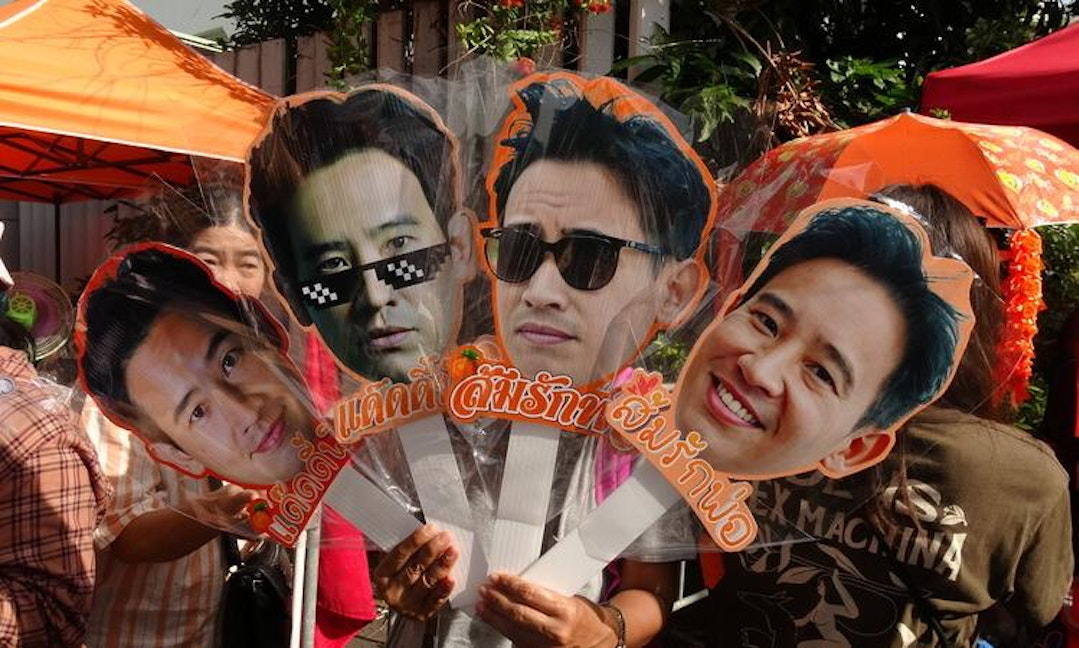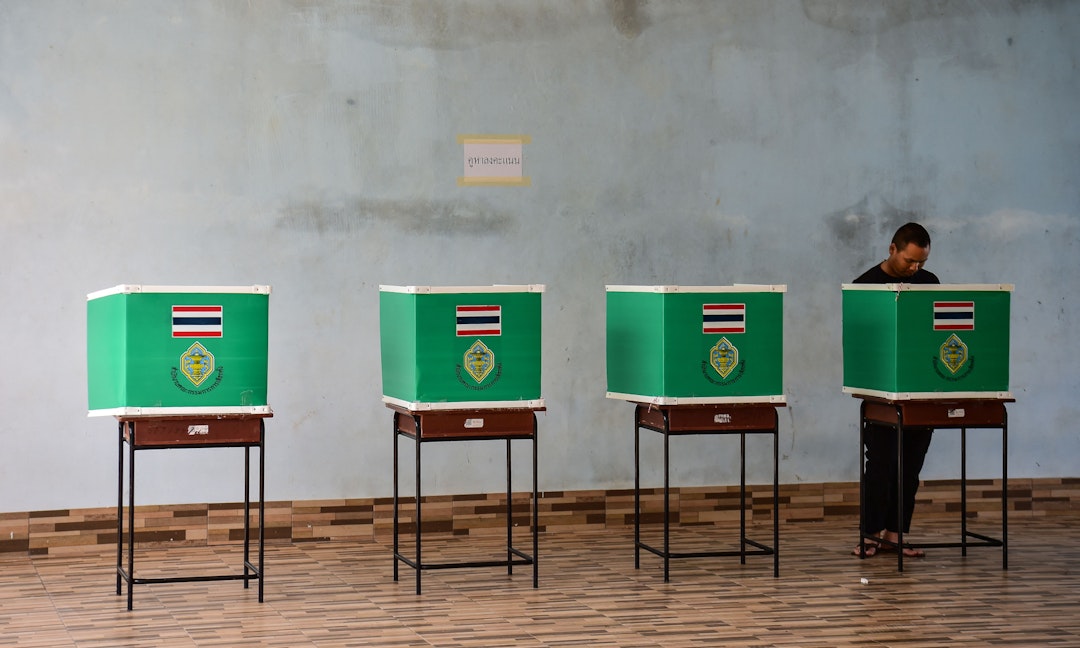
Preliminary results in Thailand’s general election on Sunday, have the country’s opposition parties — the Move Forward Party (MFP) and the Pheu Thai party — as clear victors.
With 99% of votes counted, data from the Election Commission showed that MFP had 113 constituency seats of the 400 seats where MPs are elected across the country.
The Pheu Thai Party led by Paetongtarn Shinawatra — the daughter of former premier Thaksin Shinawatra — has 112 seats.
“It is now clear that Move Forward Party has received overwhelming support from the people around the country,” Pita Limjaroenrat said on Twitter.
The national election was expected to unseat the ruling conservative military-backed government of Prime Minister Prayuth Chan-ocha after almost a decade. Prayuth’s United Thai Nation Party has 23 constituency seats.
But who heads the next government won’t be decided by Sunday’s vote alone. The prime minister will be selected in July in a joint session of the House and the 250-seat Senate, which was appointed by the junta.
Preliminary results are expected by late evening, although the final number of seats for each party will not be officially confirmed for several weeks.
The stakes of the election
The main opposition Pheu Thai party, led by Paetongtarn Shinawatra, was projected to secure most seats in the 500-member lower House, where 400 lawmakers are elected directly. The winner must secure at least 376 votes and no party is likely to do that on its own.
Both opposition parties are anti-military parties and the Senate comprises members who favor the military.
What to know about the contenders
After casting her ballot in Bangkok, Shinawatra showed no signs of nerves. “Today is going to be a good day. I have very positive energy about it,” the 36-year-old told reporters.
The progressive Move Forward Party, led by 42-year-old Pita Limjaroenrat, has made strong gains, especially among younger voters.

Both parties are pitted against rivals from the conservative, military-backed establishment that currently holds sway.
Incumbent Prime Minister Prayuth Chan-ocha is running for re-election with his newly formed conservative United Thai Nation Party. As one of those involved in Thailand’s 2014 military coup, Prayuth became premier after a controversial 2019 election.
Prawit Wongsuwan, who leads the Palang Pracharath Party, was also one of the chief architects of the 2014 coup. He was a close ally of Prayuth, serving as his deputy prime minister, until they fell out.
About 52 million people were eligible to vote in the elections to choose between progressive opposition parties and the incumbent government led by Prayuth who first came to power in a 2014 coup.
About 95,000 polling stations set up across the country opened at 8:00 am (0100 GMT) on Sunday.
It was the first election being held since youth-led pro-democracy protests broke out in 2020.
Fears linger despite a wind of change
Despite opinion polls suggesting the likelihood of a change in government, a history of military coups, court orders, and junta-formulated 2017 constitution sustain fears of the military’s continued rule.
In the 2019 elections, Pheu Thai won most seats but its military-backed nemesis, the Palang Pracharath Party, entered into a coalition with Prayuth as prime minister.
The Senate will jointly decide the fate of the country which has seen dozens of coups in the last century and witnessed a series of street protests.
kb, rm, mf/wd (AFP, Reuters, AP)
This article was originally published on Deutsche Welle. Read the original article here.
READ NEXT: Does Thailand’s Election Matter?
TNL Editor: Bryan Chou (@thenewslensintl)
If you enjoyed this article and want to receive more story updates in your news feed, please be sure to follow our Facebook.







